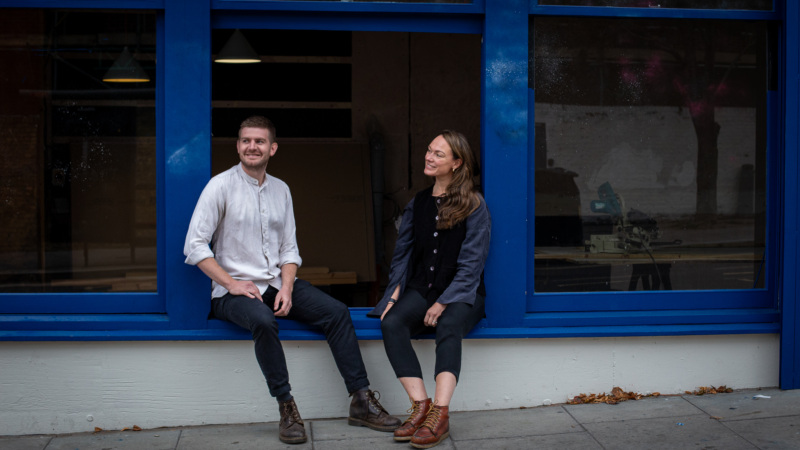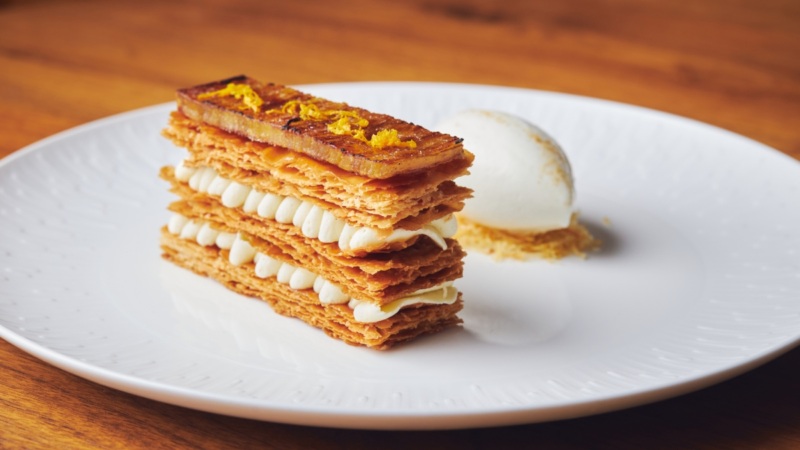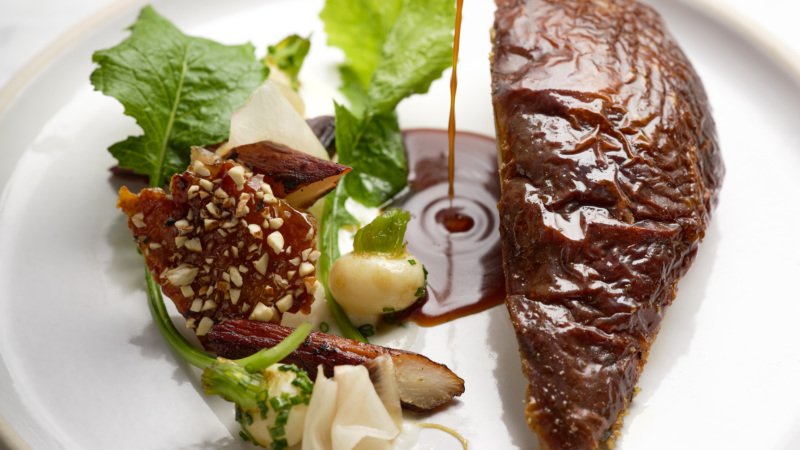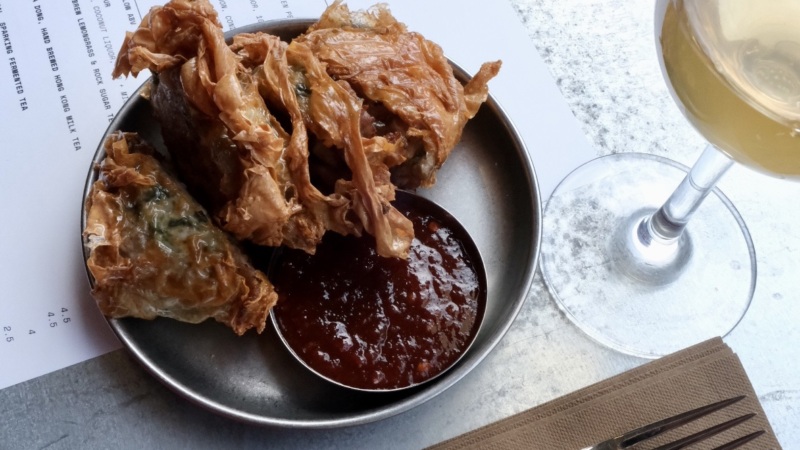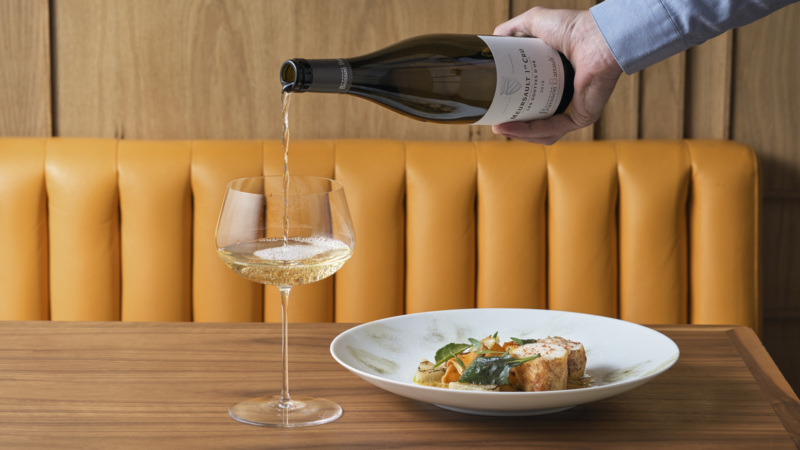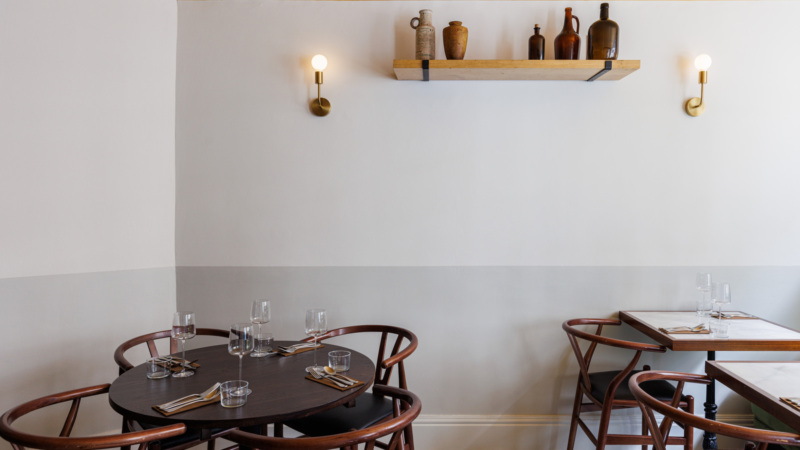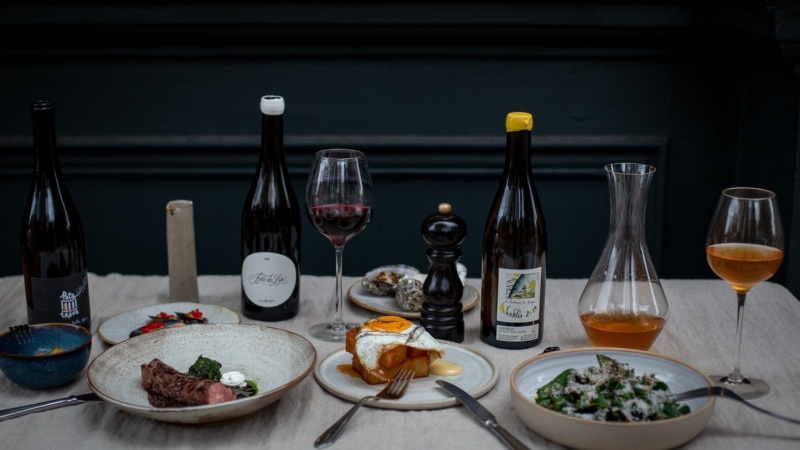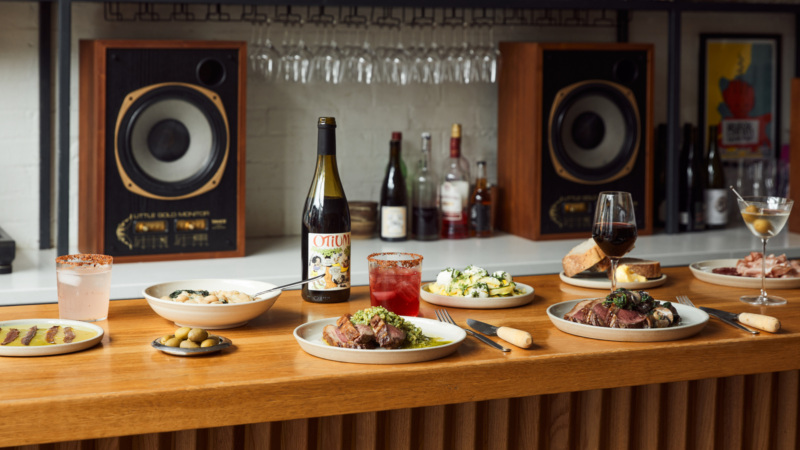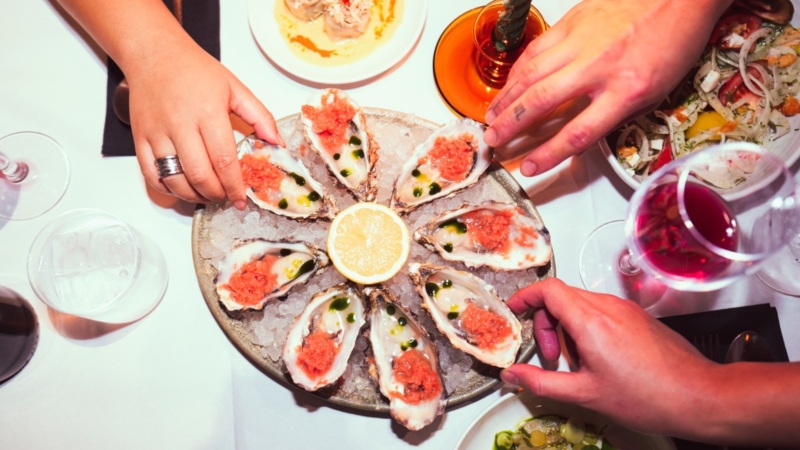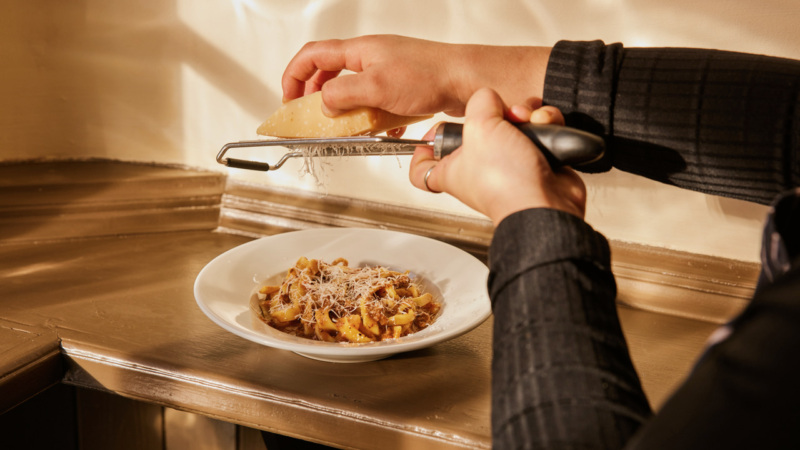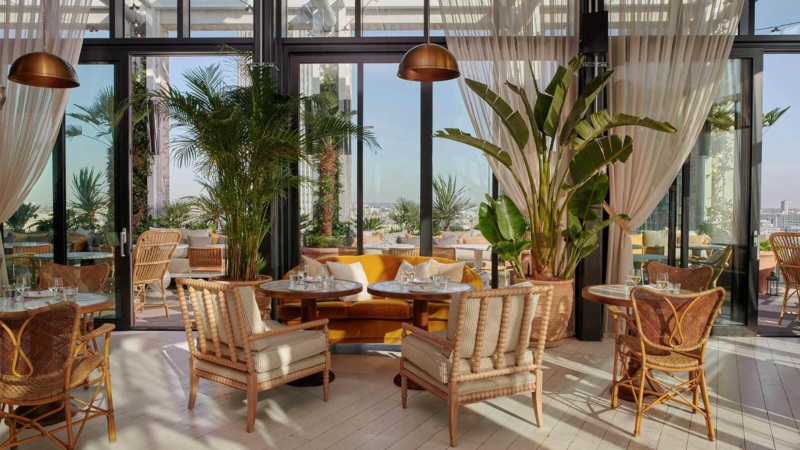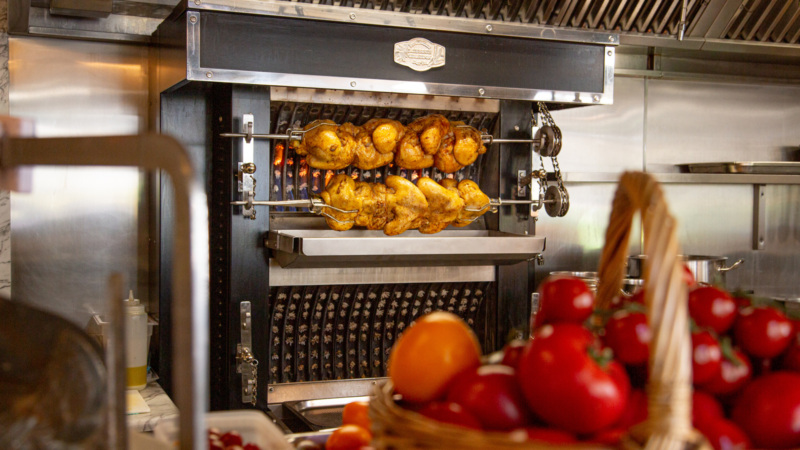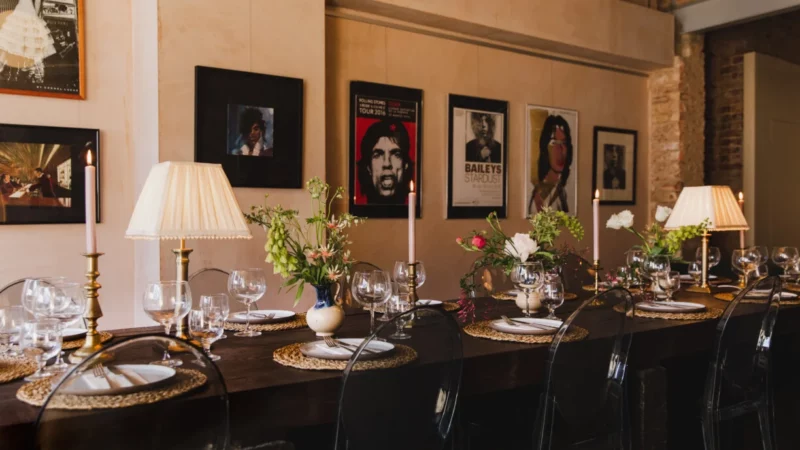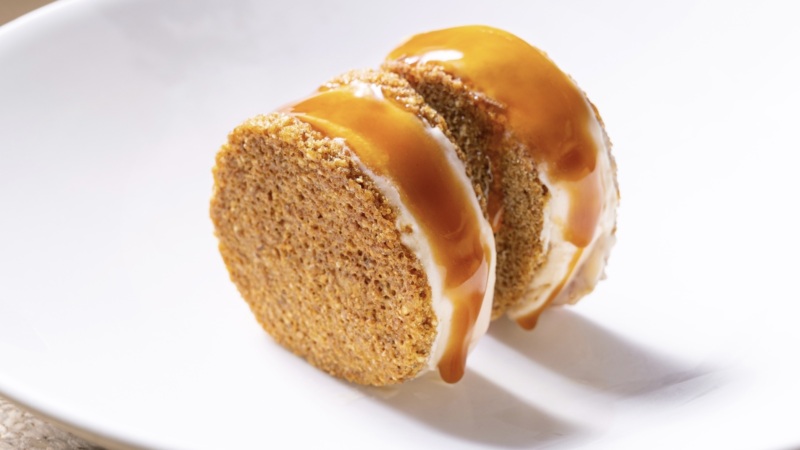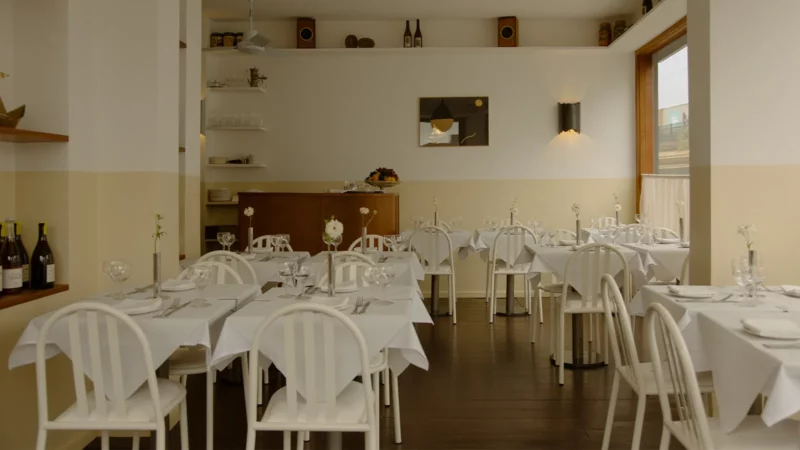
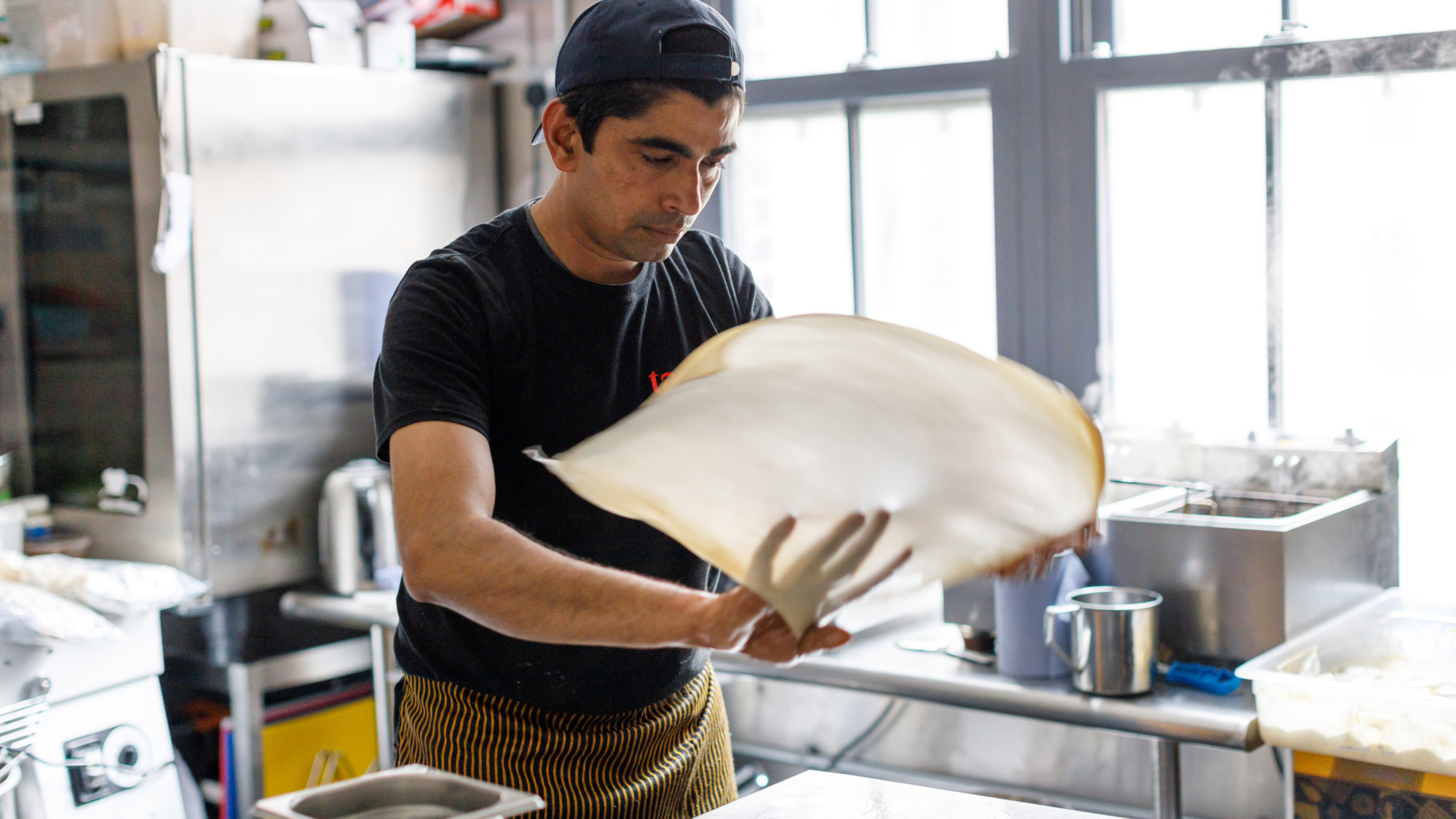
Long Live The Desi Pub: How The Tamil Prince Brings South Indian Cuisine To Islington
The Tamil Prince is a modern take on a time-honoured idea, and its concept – an atmospheric Islington boozer serving South Indian food – is the co-creation of former Bao and Patty & Bun general manager Glen Leeson and Tamil chef Prince Durairaj, previously of Gopal’s Corner and Roti King. It has been packed out since its launch. The pair worked together at Market Halls in Victoria before Covid struck, seeing out lockdown at Roti King in Euston, before branching out with their South Indian street food business Tamila in Hackney Wick.
Read on to understand the context behind The Tamil Prince’s harmonious pairing, and why the channa batura is an essential order.
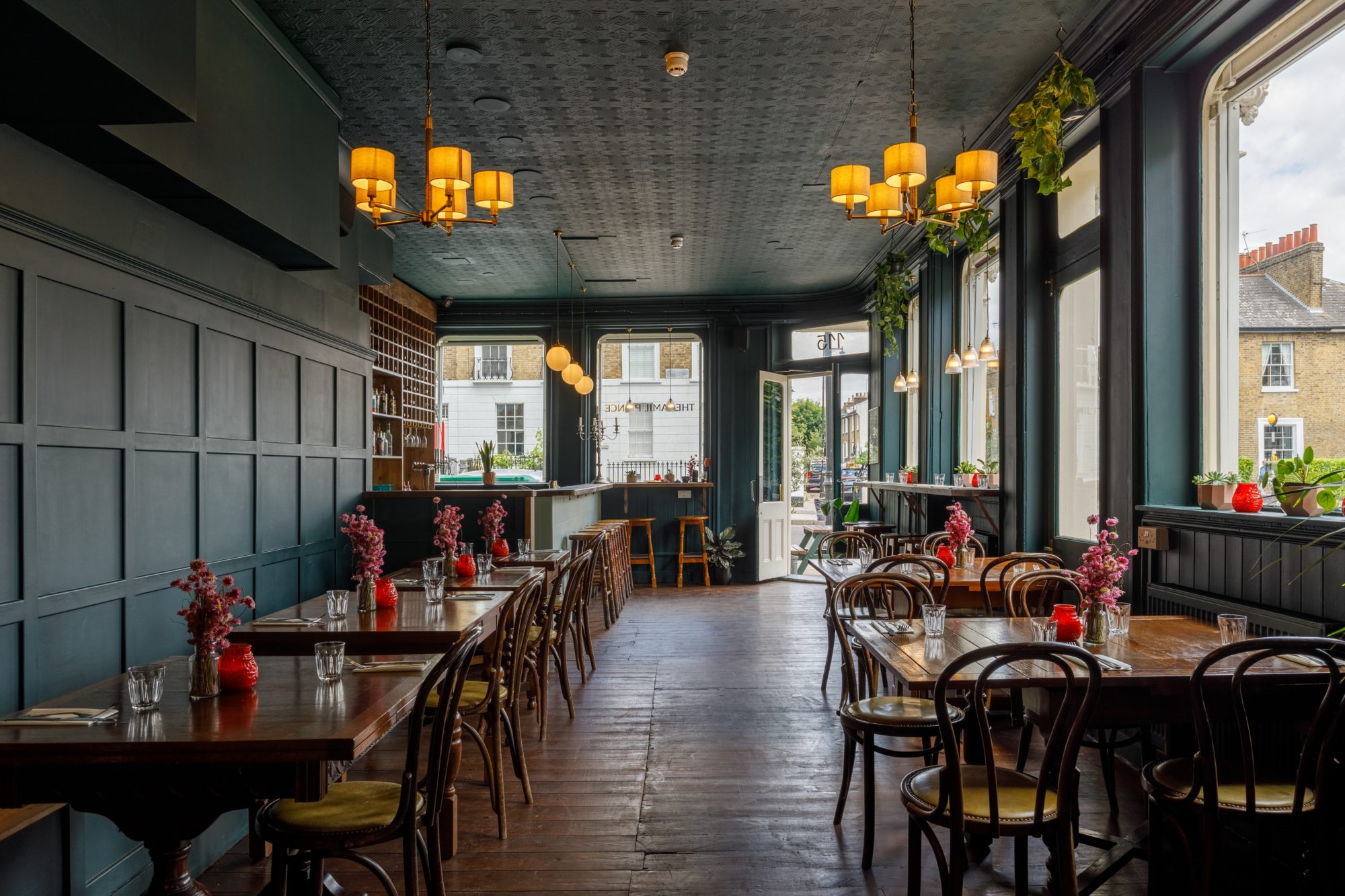
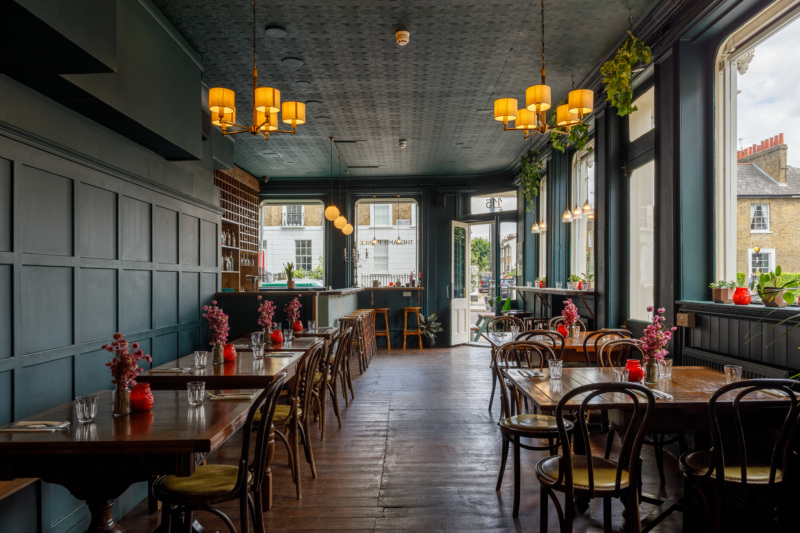
Before it opened, The Tamil Prince literally broke down a wall between a pub and what would have been a South Asian kitchen.
The pair’s first concept, Tamila, was a response to its setting at Hackney Bridge, a street food market on the River Lea in Hackney Wick. It is South Indian, primarily Tamil. Durairaj and Leeson always knew they could so a bigger project but “just didn’t know when and how” says the latter. It was when they were hunting for a dark kitchen for Tamila, that they were shown the old pub, formerly the Cuckoo, now official residence of The Tamil Prince. It was the opportunity they didn’t know they had been waiting for.
“There was a partition wall between the kitchen and the pub itself, so they could lease them as two separate businesses,” recalls Leeson. “We were like, hold on a minute, we’re not really interested in it as a dark kitchen anymore if this is the opportunity. We knew we could so something really fun there and make the most of the spot if we knocked the wall down.” The concept, a handsome old watering hole serving Indian sharing plates, suited their shared experience: Leeson from pubs, Durairaj from kitchens.
Of course, it’s far too soon to talk of what’s next but “without a doubt there will be lots more from us”, confides Leeson. “We’ve got big plans and hopefully we can just keep flying the Tamil flag.”
- In Soho, Bubala Continues to Reshape Expectations of Middle Eastern Cuisine
- Gunpowder Proves Soho Has Still Got It. But For Harneet Baweja, Challenges Remain
- Five Things To Know About Caravel, the Spiteri Brothers’ New Islington Restaurant
- Why The New Parrillan Borough Yards Should Be On Your Summer Hit List
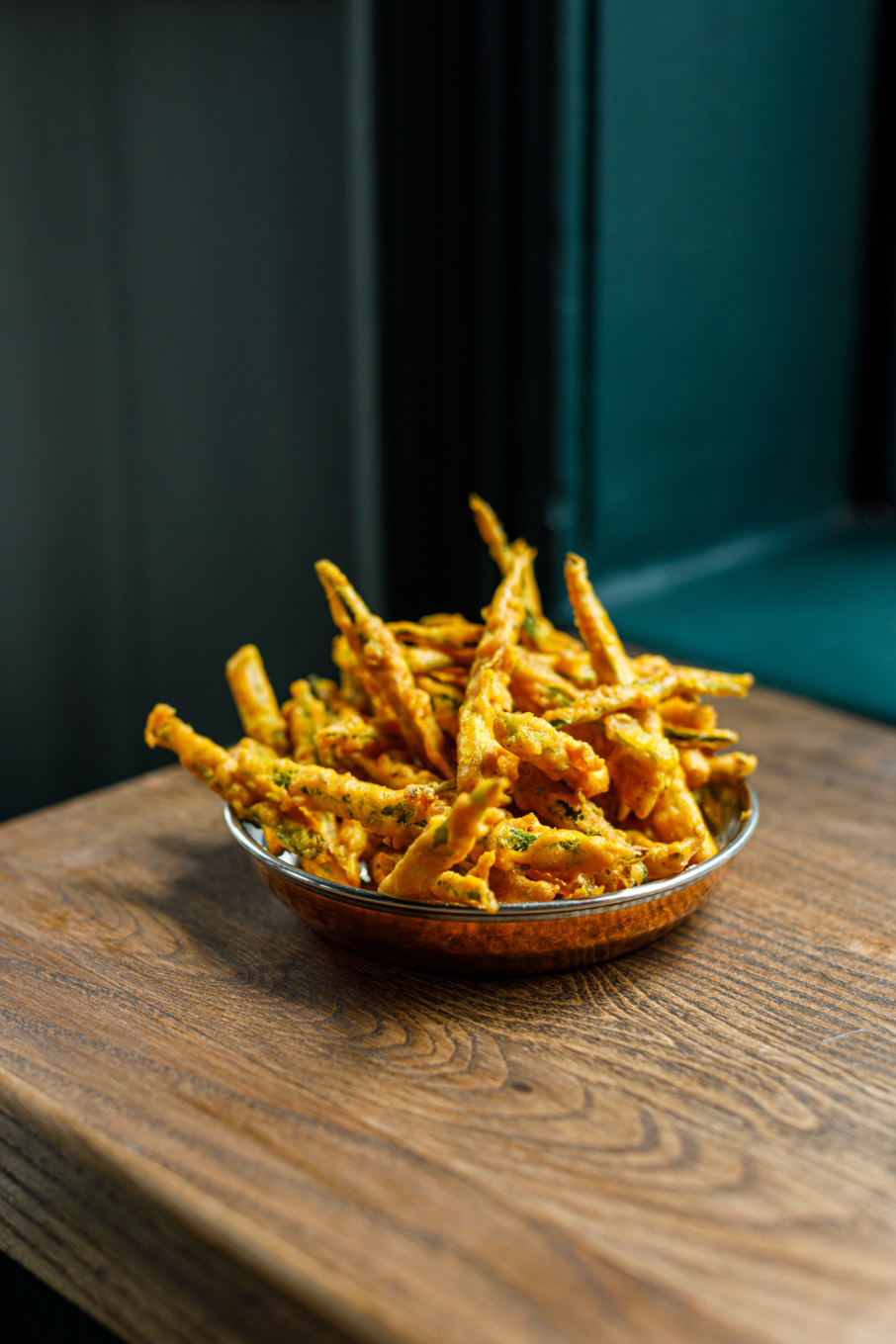
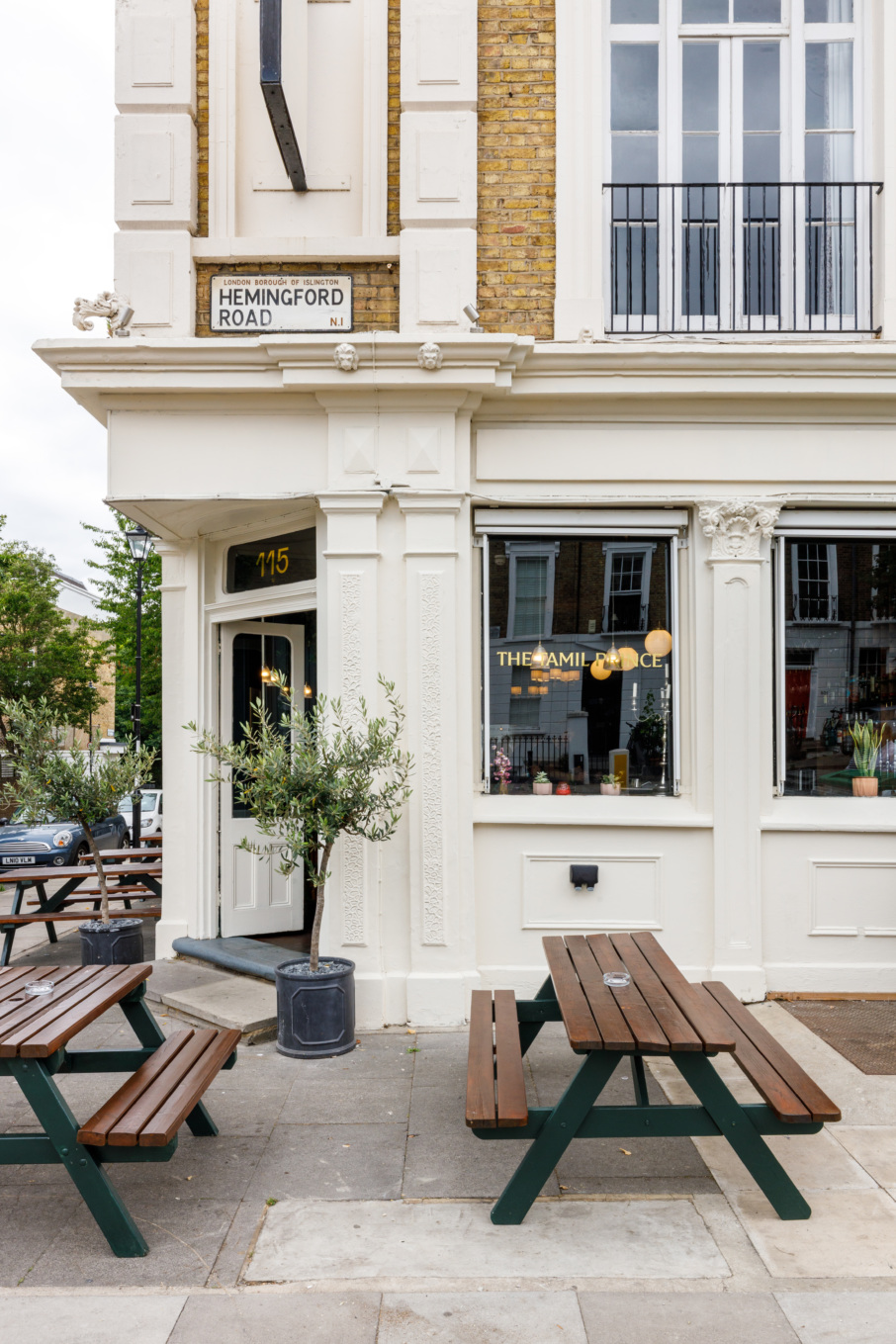
The pairing of South Asian cooking with pints is not a new concept. It builds on the Anglo-Indian tradition of the desi pub.
Desi pubs – the word desi deriving from a Sanskrit word to mean ‘back home’ – were English boozers run by Indian immigrants serving Punjabi food against a backdrop of racial discrimination and segregation, in the 1970s. They were sites of celebration and resistance; places of refuge where, writes British-Asian journalist David Jesudason, “our British-Asian ancestors fought for our right to drink.”
Most served were clustered in the Midlands and have long since shuttered. In London, the Scotsman in Southall, an institution dating back over five decades, is well worth a visit for chicken tikka, a pint and an outsize naan; while ‘the Glad’ (the Gladstone Arms), serving paneer makhani pies in Borough since 2017, is a great contemporary example.
The Tamil Prince seeks to put its own stamp on the Anglo-Indian tradition. “We have a lot of people coming in who are trying something new; others who say this is really familiar and reminds me of home. They’re the sort of comments we’re striving for,” says Leeson.
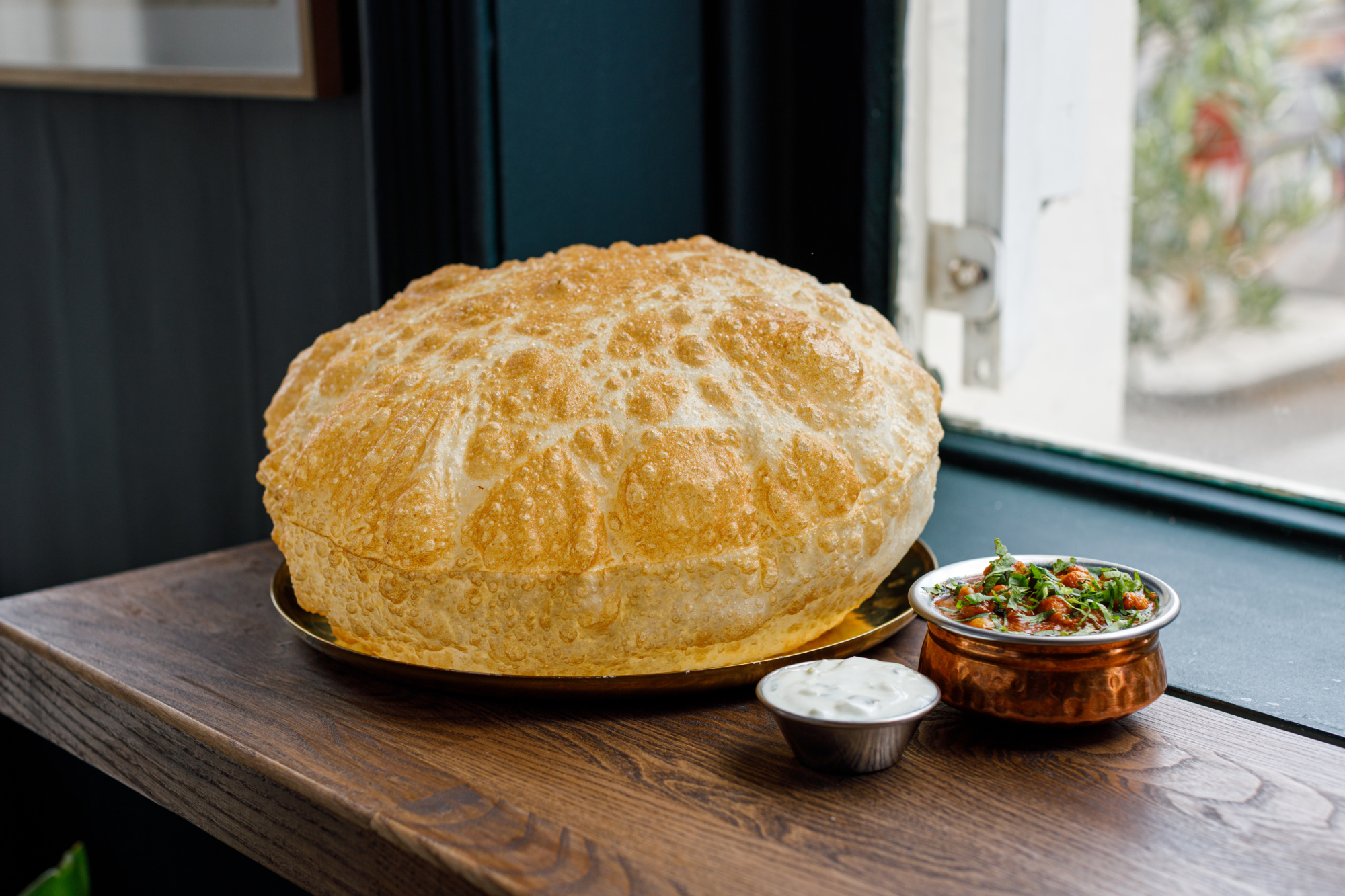
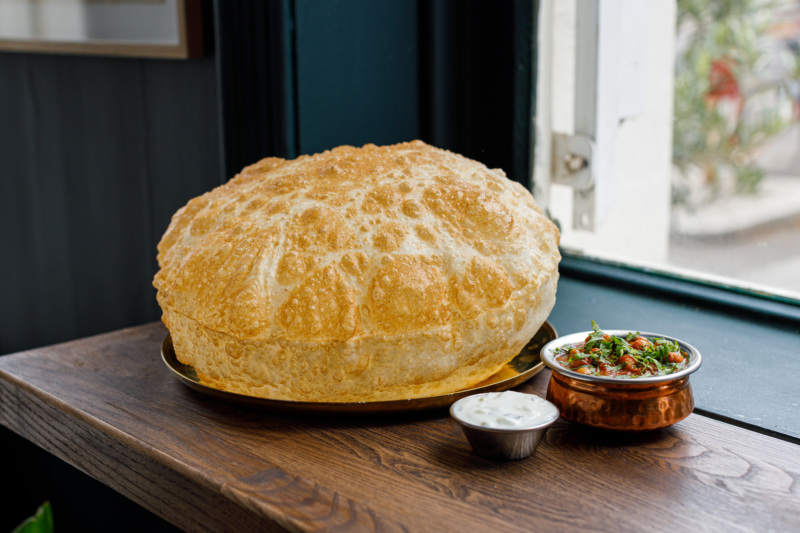
The titular prince is Tamil chef Prince Durairaj, previously of the classic London restaurant Roti King.
Initially, the concept didn’t start to gel until Durairaj created the sharing menu. His style is “very traditional, very authentic,” says Leeson. “When we realised we were going to move away from street food and do something more premium, with a restaurant feel, we talked about how to make the food look great, how to garnish it, how to plate it. Prince said ‘no, it’s not very me. I don’t need to dress it up. It already is great’. I kind of had to agree with him.”
The menu is built around snacks and smaller plates for regulars dropping in for a drink and a bite, with larger dishes (like creamy South Indian king prawn moilee or butter chicken masala with rice or roti) on offer for those committed. Leeson notes the massive grilled tiger prawns (“great with Riesling”), the lamb chops, and the battered chicken lollipops with chilli sauce as standouts. For dessert, expect mango lassi, falooda, and badam kheer, as well as the beloved gulab jamun, here served with ice cream.
Perhaps the most eye-catching dish is the channa bhatura, an inflated pillow of deep-fried dough the size of a football, served with chickpea curry. “People know puri,” says Leeson, “but unless you’re someone who goes and eats out in East Ham very often, it’s not something you have experienced before.”
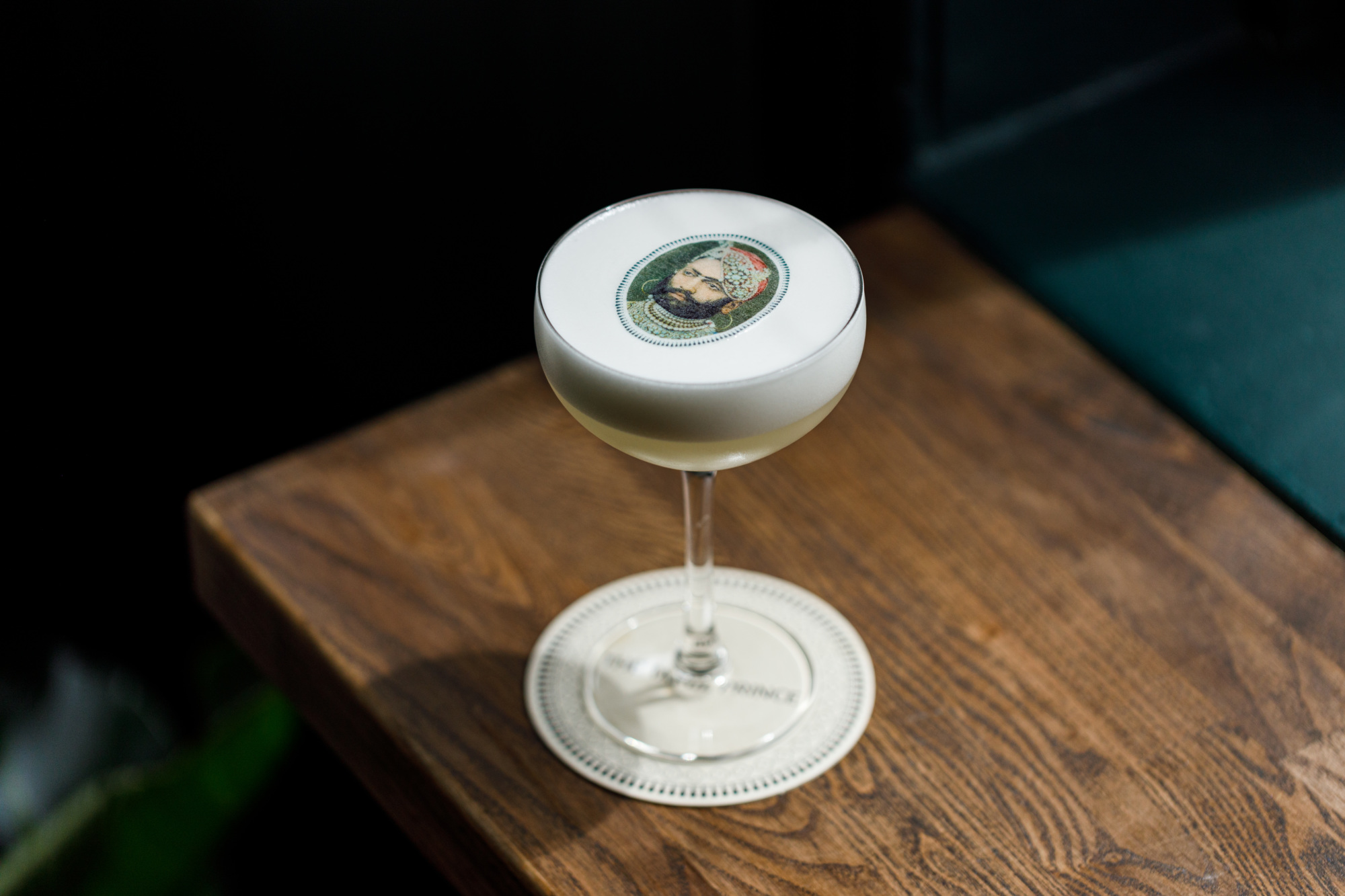
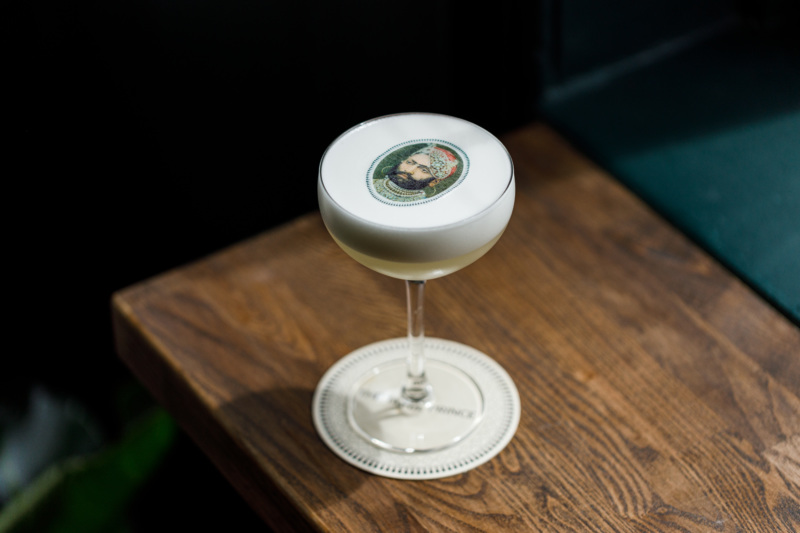
The pub’s signature cocktail, The Prince, isn’t actually on the menu.
General Manager Simone Pugi, latterly of Bar Termini, brands the pub’s signature cocktail with a transfer of the Tamil Prince logo printed on rice paper with edible ink. Though off menu, the cocktail of cardamom rum, lime and rosewater has been such a hit, it may finally graduate to the drinks list. The tamarind margarita is pretty special, too.
Whereas in a Black Country desi pub, one might expect real ale, in deepest Barnsbury, it’s all about the craft beer. The Tamil Prince works with independent breweries such as Purity Brewing Co in Warwickshire and the Harbour Beer Co in Cornwall. The only big beer is Guinness.
The Tamil Prince reimagines what a London pub might be.
For Leeson, who has worked in pubs on and off throughout his career, the old Cuckoo had “felt a bit lost”. It’s original features had been ripped out but for a wood-panelled wall; their goal was to restore its pub identity. The locals are rooting for them. “They have been a huge piece of this puzzle for us,” says Leeson. It feels like a pub at the front, while the dining room has “a few Indian accents” such as brass plates and hammered copper handi. Candles in retro red jars flicker at the tables; incense burns in the loos; the music is “probably a little too loud”. There’s a window from the dining room into the kitchen where diners can watch the chefs making roti and uttapam the traditional way. There feels like a desire for guests to appreciate these details alongside the familiarity of a traditional pub.
And while the venue’s name reflects the chef and his cuisine (“not many people are specifically championing Tamil food”), it might almost be a traditional pub moniker. It feels very much of its time.
Hilary Armstrong is a London-based journalist and editor. Follow her on Instagram and Twitter. Follow Resy, too.


